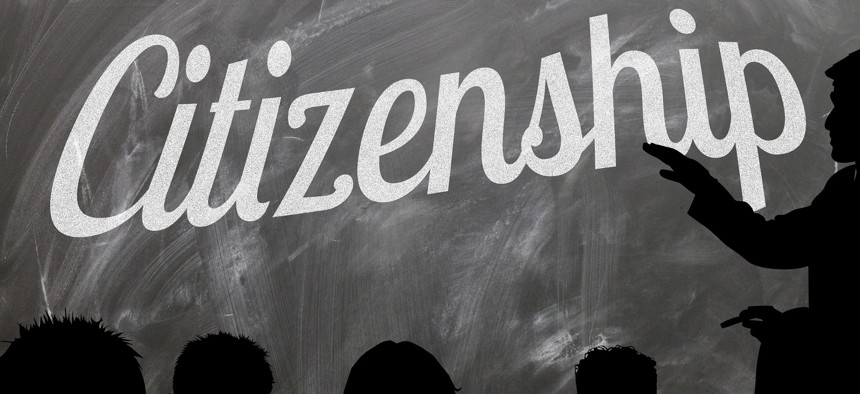Opinion
Bill Cotterell: Kids don’t know their history or how government works
Basic familiarity with government is still dismal among young people — and it's getting worse, our Capitol Columnist writes.

Image by Gerd Altmann from Pixabay
When Gov. Bob Graham spent one of his monthly “work days” teaching at a Jacksonville high school, he was surprised that so many students complained to him about food in the school cafeteria — not that they didn’t like it, but that they had no idea what to do about it.
In his eight years as Florida’s governor and 18 as a U.S. senator, Graham tried to spend one day every month working at common jobs — airport baggage handler, cop on the beat, even a shift as a news reporter — because he felt the experience kept him grounded with the lives of the people he served. In memoirs years later, Graham said one of the main lessons he learned was how so many people know so little about the government that affects so much of their lives.
The disgruntled school kids, Graham said, didn’t know if they should complain to their school board, or legislators, or county commission, maybe members of Congress. OK, they figured, we’ve got the governor here today, let’s tell him.
Graham, who championed civics and history teachings in Florida schools, titled one of his post-retirement books, “America, The Owner’s Manual: How You Can Fight City Hall — and Win,” co-authored with lawyer Chris Hand, a longtime political aide.
Not taking anything away from the importance of reading, writing and arithmetic, but students ought to know, by high school, the different duties of the cop who writes them a ticket, the judge who imposes a fine and the lawmakers who set the speed limit and the range of penalties.
Nearly a half-century after that work day, basic familiarity with government operation is still dismal among young people. In fact, it’s getting worse. A report last week by the National Assessment of Educational Progress showed that just 13% of the nation’s eighth graders are proficient in American history.
Testing by NAEP, commonly referred to as “the nation’s report card,” found that 22% are up to speed on civics. That’s a decline of five points in history since 2018 and two points in civics.
Peggy G. Carr, commissioner of the National Center for Education Statistics, called the NAEP numbers “a national concern.” She said too many students don’t understand “the importance of civic participation, how American government works, and the historical significance of events.”
The COVID pandemic caused part of the slide in test scores. But political or moral meddling in the classroom — book bans, taboo topics involving ugly aspects of American history, teachers worrying that a swarm of busybody moms can get a principal fired over a Michelangelo sculpture — has to figure into the trend.
Martin West, a Harvard education professor who serves on the NAEP board, said the new history and civics figures don’t show reasons for the decline. But, he told the Washington Post, “I think it’s fair to speculate that ongoing debates over how to teach history may well be getting in the way of actually doing it.”
In their past couple of legislative sessions, Florida legislators made teaching a little harder. The stuff about gender identity and bathrooms got most of the media attention, but the “anti-woke” campaign of Gov. Ron DeSantis found its way into legislation mandating that teachers make sure none of their lessons make any students feel any guilt about anything that might have happened in the good ol’ days.
And parents need to shoulder primary responsibility for their students’ performance. Teachers and school superintendents are easy to blame, but they have to work with what we send them. If reading is not important in the home, if MSNBC or Fox News is a family’s main source for current events, schools will have a hard time getting a kid interested in any current events deeper than reports that Taylor Swift may have a new boyfriend.
People laughed about Joe Biden showing his age by mentioning “record players” in a 2019 debate. But he was right that young people need as many sources as possible for not just entertainment, but mental stimulation, at home.
Florida voters will decide next year on a Republican proposal to make school board elections partisan. But most of them probably won’t know the difference between a constitutional amendment and a law, or how many votes it takes for legislators to put one on the ballot, or that it takes 60% in a public referendum to pass, or why school boards are non-partisan now.
Bill Cotterell is a retired capitol reporter for United Press International and the Tallahassee Democrat. He can be reached at bcotterell@tallahassee.com.
NEXT STORY: Bill Cotterell: Resignation edict serves no purpose in presidential races
